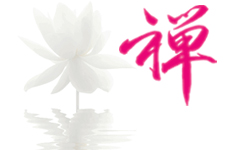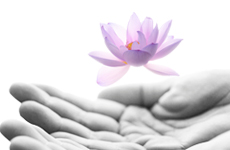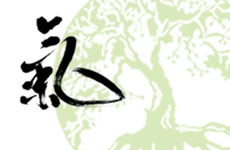
Buddhism in Modern Life
Today’s modern life, with all the rushing and new technology around, it may be hard to find any time to contemplate religion or see its relevancy in today’s world. The 21th century is mainly dominated by people too busy worrying and trying to make the next buck, while others have plenty and are too busy spending it. It may seem that there is no room for religion anymore. In the words of my atheist friend, when the guests had to attend church before arriving at his barbecue, ‘I can’t believe people still go to church’, bewildered that it had not died out yet. It certainly seems no longer fashionable. However, religion is a personal journey and you may be surprise at how many people are on their own path. Religion does not just entail that we are kind to each other, but assists us on our spiritual growth, which will always be beneficial to our daily life.
Kwok Chan is a lead designer at a digital agency in Hong Kong. He grew up in England, where he attending Catholic and Christian school. He became successful in his work and enjoyed a life of partying in Hong Kong, after which he became an active Buddhist. I thought an interview with him would be enlightening, and show us why a busy man such as him would choose and find time to practice Buddhism. He also provided a good insight into many Buddhist aspects, which are commonly misunderstood.
Kwok, why when you were enjoying a life of partying did you choose to become Buddhist?
Kwok: I hit a certain point in life when I could see what will happen down the road in the next tens years. I was going out loads and had done lots of travelling, and basically did everything or most of the things I had ever wanted to do. I couldn’t see how anything else would amaze me, or what else there really was to do. Even though even thing was great, I wasn’t really happy if this was all there was to life, if this was all life was about. I kept thinking there must be an alternative to this life and I became interested in religion and psychology.
So you could say even though you had it all, it wasn’t enough; you felt that there was some thing missing, so you started looking into other interests like religion? But why, Buddhism, as you seems to have a Christian background. Where your parents influential in this decision?
Kwok : Yes I went to Catholic and Christian Schools when I was little, but I never subscribe to it. I never really believed that there was this one great being, God, who created us. It seemed too unrealistic, the idea that some one was above us watching us. My parents practice a mix of Taoism and Buddhism, without clearly understanding either or the difference between the two. This is very common of the older generation of Chinese people, they seem to mix the two up and just go through the rituals for good luck.
[Jesus and Buddha complement each other perfectly. Buddha was born a prince and gave it all up for spiritual awareness, where else Jesus was a poor shepherd who became a King. Buddha is a fine example to the rich showing them what is more important and Jesus, an example to the poor, showing them that they too can achieve greatness. Clearly they are perfect balanced counterparts, being part of one divine plan, to help us all achieve spiritual awareness. The variety of religions may seem at first to be a contradiction to each other, but they do not. The varieties of religions work together to ensure that there is a chance that each person is touched, as everyone has different personalities and respond to different things, even at different stages of their lives. Thus corresponding to the diversity of people out there.]
So how did you start on this path?
Kwok : I started reading books in psychology and anything explaining how our mind work and became interested in Buddhism. I decided to go to Tibet and Nepal for trekking and on the back of that I wanted to meet some Buddhist teachers. I left just before the Internet bubble burst in 2000. At the time I was very successful in my work and things were still blooming, so you can see it wasn’t enough and I gave it up to find what else there was out there. I found a retreat at Kopan Monastery in Kathmandu Nepal, and attended a 1 month Buddhist course taught by Tibetan & western monks. They had taught Westerners this course in English since 1970’s, so for over 40 yrs. Nearly 350 people attend every year from children to much older people in their 70’s. I attended in 2001, since then I have attended every year.
Did you not find a teacher in Tibet?
Kwok : Tibet is under Chinese regime, and thus the people cannot be seen seriously practicing or teaching Buddhism. They have to show an outward despise of the Dalai Lama and are not allowed any pictures.
And what did you learn that made you think that Buddhism was for you?
 Kwok : I was attracted to Buddhism because it explained to me why I was unhappy and it explained all my questions on why this happened and also that there was something else beyond this. As it teaches you that you can reach a point where you can stop suffering and that there is more beyond my current life…..
Kwok : I was attracted to Buddhism because it explained to me why I was unhappy and it explained all my questions on why this happened and also that there was something else beyond this. As it teaches you that you can reach a point where you can stop suffering and that there is more beyond my current life…..
As all the fundamental things in life that are bad are going to happen to everyone. Buddhism describes how life has all these conditions set up for us to have suffering. Like having the emotions of jealousy, greed etc. and how we don’t want good things to change, wanting to hold on to things and wanting them to last forever. Nearly the whole society seems to need a certain lifestyle and is more concerned about outer appearances, and about how to obtain them or the fact that they don’t have certain things.
It taught me to understand impermanent, that nothing lasts. That one needs to get rid of attachment as things are forever changing or you will never be content. It is also very practical. I have to work through the practices to learn, and practicing them in my daily life.
[We’re programmed and conditioned to stay in this 3rd dimensional material world, as we are taught from early age and brainwashed daily to want and the need to achieve certain things or status throughout schooling and advertising. In the Kabbalah, once we have exhausted our material evolution, we will begin our spiritual one. As long as our thoughts are constantly worried about how we will provide or are obsessed with having more, it is unlikely we will find time to think of anything else. Thus we will be contained in our material evolution, in the 3rd dimensional world. It may seem easier for those who feel they have sufficient, materially, to have time to ponder and strive for more in a different direction, but if they are not careful they can be trapped in an obsession of material possessions. We need to liberate ourselves by learning and teaching the important fundamental things in life, of love and compassion. We could learn from Bhutan’s five-year planning process which has a unifying vision to ensure quality of life, assessed by the measurement of gross national happiness rather than only the economic indicator of gross domestic product.]
How has that helped your daily life?
Kwok : I am learning how to take control of my life and deal with unpleasant situations better. It taught me that bad things happen, but whether these things are good or bad things, I just ride them out and not get attached.
For example if someone blames you at work, do you automatically respond in a negative way or do you evaluate the situation.
Do you automatically think that person is bad and get stuck there, or do you apply the remedy?
How did you learn to control your previous instinctive reaction?
Kwok : Stop to understand that person,
There maybe something you have not understood so you can’t jump to conclusions.
So instead of getting angry you respond with kindness. It is the only way to stop the repeated cycle of bad things going around.
Meditation also helps me to provide space for introspective, and controlling my initial feelings.
You always try and control the external environment and are unhappy as it is not possible.
Consider all the good things and bad are due to your actions in the past. In any given event there are causes and conditions that come together to create that event.
This is Karma, could you explain more about it, as many of us just define it as when there is an action there is a re-action which will balance out the initial action?
Kwok : That action can be physical body movement, speech or mental
Mental is the strongest, with a thought intention you leave a mental imprint, somewhere in the future that imprint will manifest an experience when the conditions comes together.
Whatever you deposit, the result will mirror it. Studying Buddhism is like the studying of yourself.
In buddhism there are many mental factors that occupy the mind at any given time. Feeling is one of these factors (feeling good, bad, or neutral). Karma also determines how you will feel about something, whether you feel good, bad or neutral.
The current feeling that you having is the ripening of karma. If you understand this relationship with karma then you want to be really mindful of your actions and thoughts even under difficult situation. Bad thoughts can continue the cycle of bad things ripening. However you can change that cycle.
Where else could you apply Buddhism in todays world?
Kwok : Buddhism is as relevant today as it was back in 2,500 years ago because fundamentally how the mind functions remain the same. We all want to be happy and avoid suffering, this is a simple fact. We are actually more deluded right now then ever before! Buddhism provide the tools to keep your mind in balance/sane, it helps us to get grounded in reality and ultimately being in control of your life. Studying Buddhism is like studying oneself, to be able to be our own therapist. By understanding your problems you will develop empathy for others who are in the same situation as you.
There are so many areas you would apply Buddhism, our environment would a great example. Buddha taught that everything around us is interdependent, meaning there are no independently existing phenomena or things and we are all connect in one way or another. What happens in one country will have a direct impact on another if not the entire world. Look at how global financial stability reply on the stability of each individual countries, and how all the damage to the environment happening around the world affects us on a local level. I like the example the Vietnamese monk Thich Nhat Hanh gave when he looked into a book. Within the pages of a book, he saw not only the tree where the page has come from but also the rain, the soil that help to grow the tree and all the people who contributed to the words in the book.
And what has it changed for you?
Kwok : I think it’s a lot easier to be bad than good. I was quite negative before rather than positive and I would think of myself first. I guess I was quite selfish, where else I try to be more generous and understanding now.
[Only learning about ourselves, facing up to who we really are rather than being in denial, can we understand where we can improve and become the best that we can be.]
What is the aim of Buddhism?
Kwok : Buddhist path is to end suffering. Individually, it is to end one’s own suffering. From there as you become Buddha, become enlightened; you will naturally want to work for the greater good, which is to end other’s suffering.
Our grasping to the inherent ‘self’ drives the need to be re-born again. Until we gain realization of selflessness we will continue this cycle of samsara (suffering). Once broken, you will not have this trigger to be reborn again. However for the greater good, a Bodhisattva will chose to be re-born so they can continue to help others.
 Going back to meditation, could you explain more about the process that you use?
Going back to meditation, could you explain more about the process that you use?
Kwok : Our meditation can take 2 forms. Analytical which means to analysis a certain topic or the development of concentration. You can train your concentration by first concentrating on an object like your breath. This concentration is then applied to a subject like emptiness. Not in the sense of nothingness, but the lack of inherent existent. To try and realize there is no external reality independent from our own mind, to perceive how everything around us is like an illusion.
If everything is empty everything is possible. What we see is our own mental realm, as it is created in and from our minds.
“Reality is merely an illusion, although a very persistent one.” – Albert Einstein
and the use of mantras?
Kwok : Mantra is part of tantric Buddhism, the esoteric teaching that they do in secret or privately. The Mantra’s are associated with a certain deity, which is connected to an aspect of Buddha, like Guan Yin, who represents compassion.
Mantra is just the verbal aspect of the practice where you visualize yourself as the deity, as that enlightened being. This helps you to achieve that aspect, like compassion, and helps to change yourself.
Normally the Mantra is passed to you from your Mentor and in that way you have your mentor’s blessing and know it was pass to you through his particular lineage, even though now they can be found everywhere.
I’ve seen lots of Buddha Mandalas pictures, depicting Buddha’s in squares and circles, what do they represent?
Kwok : They are used to help one to visualise within Tantric practices and describe specific enlightened being’s environment. You concentrate on the deities to learn their attributes.
There are so many scriptures, which ones should we read?
Kwok : All the sutras are historically the word of Sakyamuni Buddha . People previously were more intelligent and could understand original explanations, but now there are commentaries on these sutras written by Buddhists masters over the years. There are now even commentaries on commentaries to help the study of these.
May I ask how old are you now, as you look very young, Buddhism becomes you. Is it because you are vegetarian?
Kwok : (Laughs) 44 and but Asian genes, don’t think it has to do with Buddhism. I am a vegetarian, but you do not have to be a vegetarian to be a Buddhist. It doesn’t stop you from being a Buddhist.







